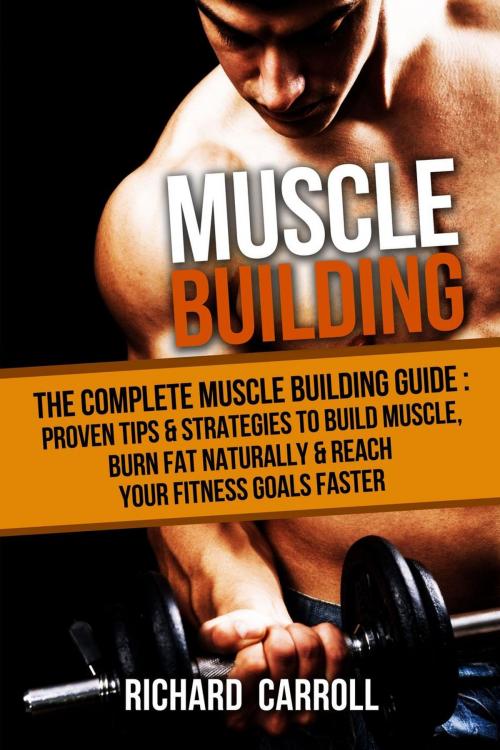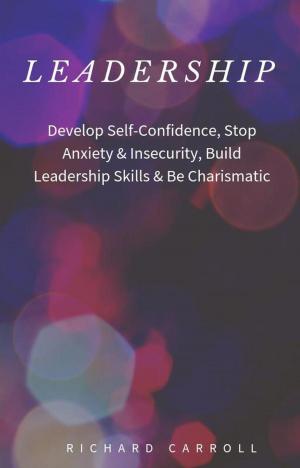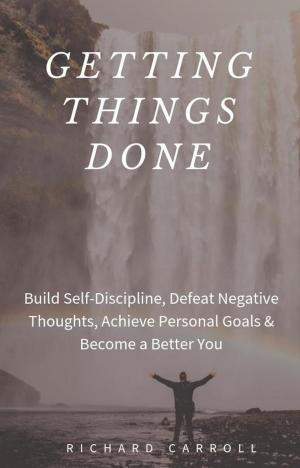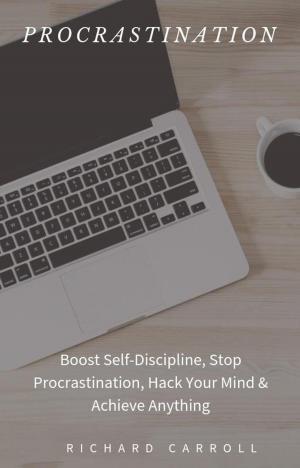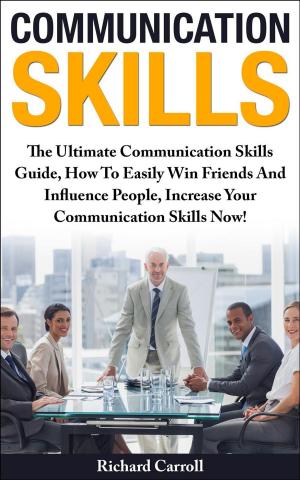Muscle Building: The Complete Muscle Building Guide - Proven Tips & Strategies To Build Muscle, Burn Fat Naturally & Reach Your Fitness Goals Faster
Nonfiction, Health & Well Being, Fitness, Exercise, Health, Nutrition & Diet, Diets| Author: | Richard Carroll | ISBN: | 9781507019689 |
| Publisher: | Richard Carroll | Publication: | December 22, 2014 |
| Imprint: | Language: | English |
| Author: | Richard Carroll |
| ISBN: | 9781507019689 |
| Publisher: | Richard Carroll |
| Publication: | December 22, 2014 |
| Imprint: | |
| Language: | English |
Muscle Building: The Complete Muscle Building Guide - Proven Tips & Strategies To Build Muscle, Burn Fat Naturally & Reach Your Fitness Goals Faster. Read on your PC, Mac, smart phone, tablet
This book contains proven steps and strategies on how to build lean and strong muscles, burn body fat and achieve your fitness goals. This book aims to guide people in their journey towards attaining a healthier and fitter body. After reading the contents of this book, you will surely gain insights on what you can do to build leaner and stronger muscles, burn more body fats and reach your desired level of fitness.
Here Is A Preview Of What You'll Learn...
Feed your Muscles
Tear and Repair
The Best Bodybuilding Supplements
Much, much more!
Download your copy today!
Feed your Muscles
Muscles are also made in the kitchen, not only in the gym. Whether your goal is to build muscles or burn fat, nutrition plays a major part. You tear up your muscles in the gym and repair them when you sleep; but it is when you eat that you feed them and make them big. In order to bulk up with lean muscles, you need to do some serious eating, but you need to ingest the right kinds of food.
Protein and Muscles
The role of protein in our body extends far beyond muscle building. It is estimated that the human body consists of 50,000 different kinds of protein, each with its own unique purpose. Protein is there when you blink your eye or when your heart beats. Your body’s dry weight is around 50 percent of this stuff.
Protein is the second most plentiful component of your muscle, next to water. Every muscle cell contains around 70 percent water and 20 percent protein. You need a steady supply of protein if you need to keep these muscle cells in good form and if you want to build stronger ones.
During strength training, muscle tissues tear as a response to the heavy load. Your body responses by doing repairs on the damaged area. The protein in your blood is responsible for repairing the damaged muscle cells.
Besides muscle building, you exercise because you want to burn off excess fats. Protein helps by enhancing your metabolism, making your body burn more fats while building muscles at the same time. Actually, if you have more muscles, you burn more fat and calories even when at rest.
Incorporating protein into your diet can suppress your appetite and prevent you from overeating. Protein-rich foods are satiating, so you fell full faster and longer.
How much protein do I need to build muscles?
Visit a bodybuilding site and you will be greeted with tons of advertisements and articles that promote consumption of 1 gram of protein for every pound of weight, AT LEAST. That means if you’re a 160 pound guy, you’ll need to get 160 grams of protein from food and supplements daily on the minimum. And they’re saying more protein means more muscles. Well, yes and no.
Muscle Building: The Complete Muscle Building Guide - Proven Tips & Strategies To Build Muscle, Burn Fat Naturally & Reach Your Fitness Goals Faster. Read on your PC, Mac, smart phone, tablet
This book contains proven steps and strategies on how to build lean and strong muscles, burn body fat and achieve your fitness goals. This book aims to guide people in their journey towards attaining a healthier and fitter body. After reading the contents of this book, you will surely gain insights on what you can do to build leaner and stronger muscles, burn more body fats and reach your desired level of fitness.
Here Is A Preview Of What You'll Learn...
Feed your Muscles
Tear and Repair
The Best Bodybuilding Supplements
Much, much more!
Download your copy today!
Feed your Muscles
Muscles are also made in the kitchen, not only in the gym. Whether your goal is to build muscles or burn fat, nutrition plays a major part. You tear up your muscles in the gym and repair them when you sleep; but it is when you eat that you feed them and make them big. In order to bulk up with lean muscles, you need to do some serious eating, but you need to ingest the right kinds of food.
Protein and Muscles
The role of protein in our body extends far beyond muscle building. It is estimated that the human body consists of 50,000 different kinds of protein, each with its own unique purpose. Protein is there when you blink your eye or when your heart beats. Your body’s dry weight is around 50 percent of this stuff.
Protein is the second most plentiful component of your muscle, next to water. Every muscle cell contains around 70 percent water and 20 percent protein. You need a steady supply of protein if you need to keep these muscle cells in good form and if you want to build stronger ones.
During strength training, muscle tissues tear as a response to the heavy load. Your body responses by doing repairs on the damaged area. The protein in your blood is responsible for repairing the damaged muscle cells.
Besides muscle building, you exercise because you want to burn off excess fats. Protein helps by enhancing your metabolism, making your body burn more fats while building muscles at the same time. Actually, if you have more muscles, you burn more fat and calories even when at rest.
Incorporating protein into your diet can suppress your appetite and prevent you from overeating. Protein-rich foods are satiating, so you fell full faster and longer.
How much protein do I need to build muscles?
Visit a bodybuilding site and you will be greeted with tons of advertisements and articles that promote consumption of 1 gram of protein for every pound of weight, AT LEAST. That means if you’re a 160 pound guy, you’ll need to get 160 grams of protein from food and supplements daily on the minimum. And they’re saying more protein means more muscles. Well, yes and no.
